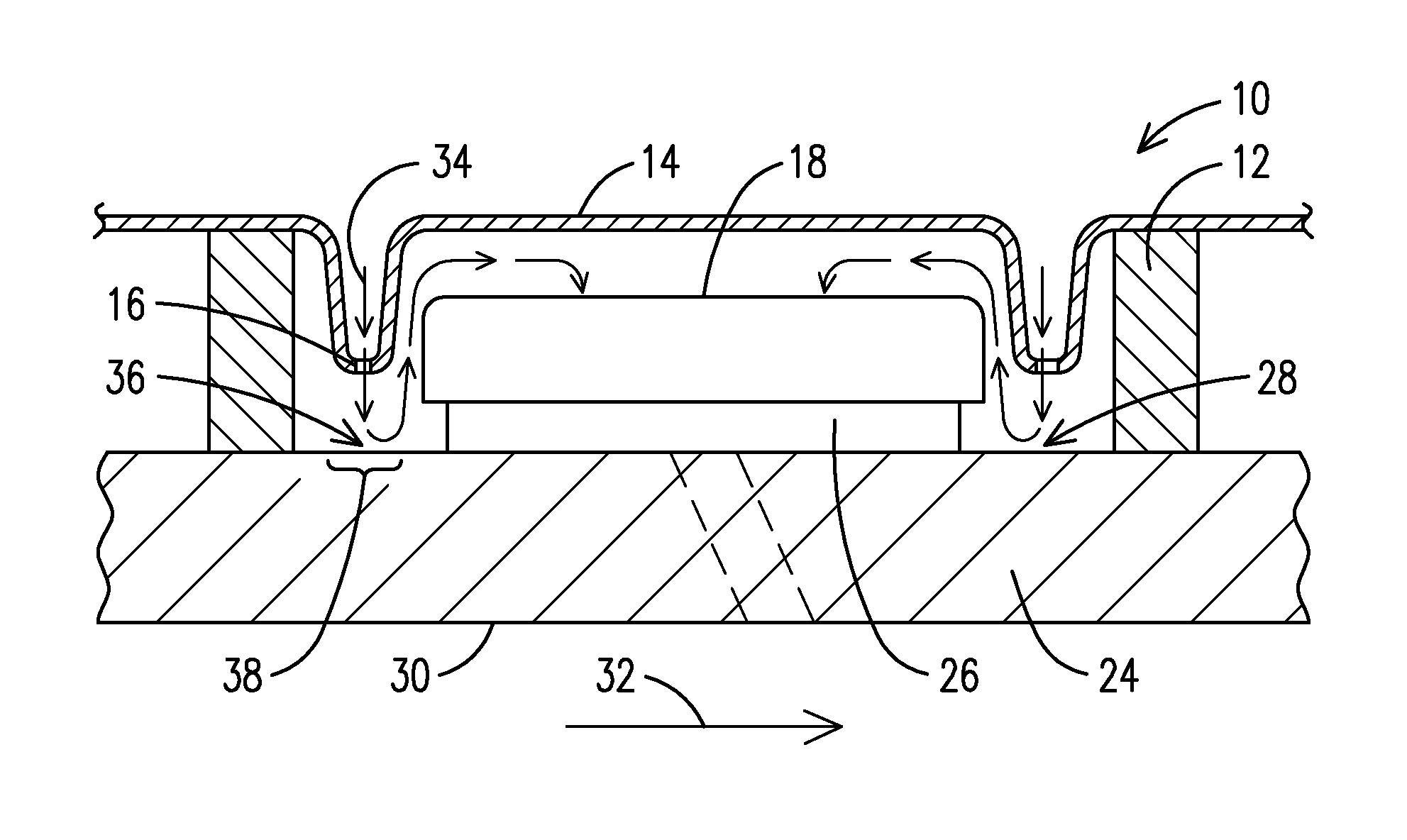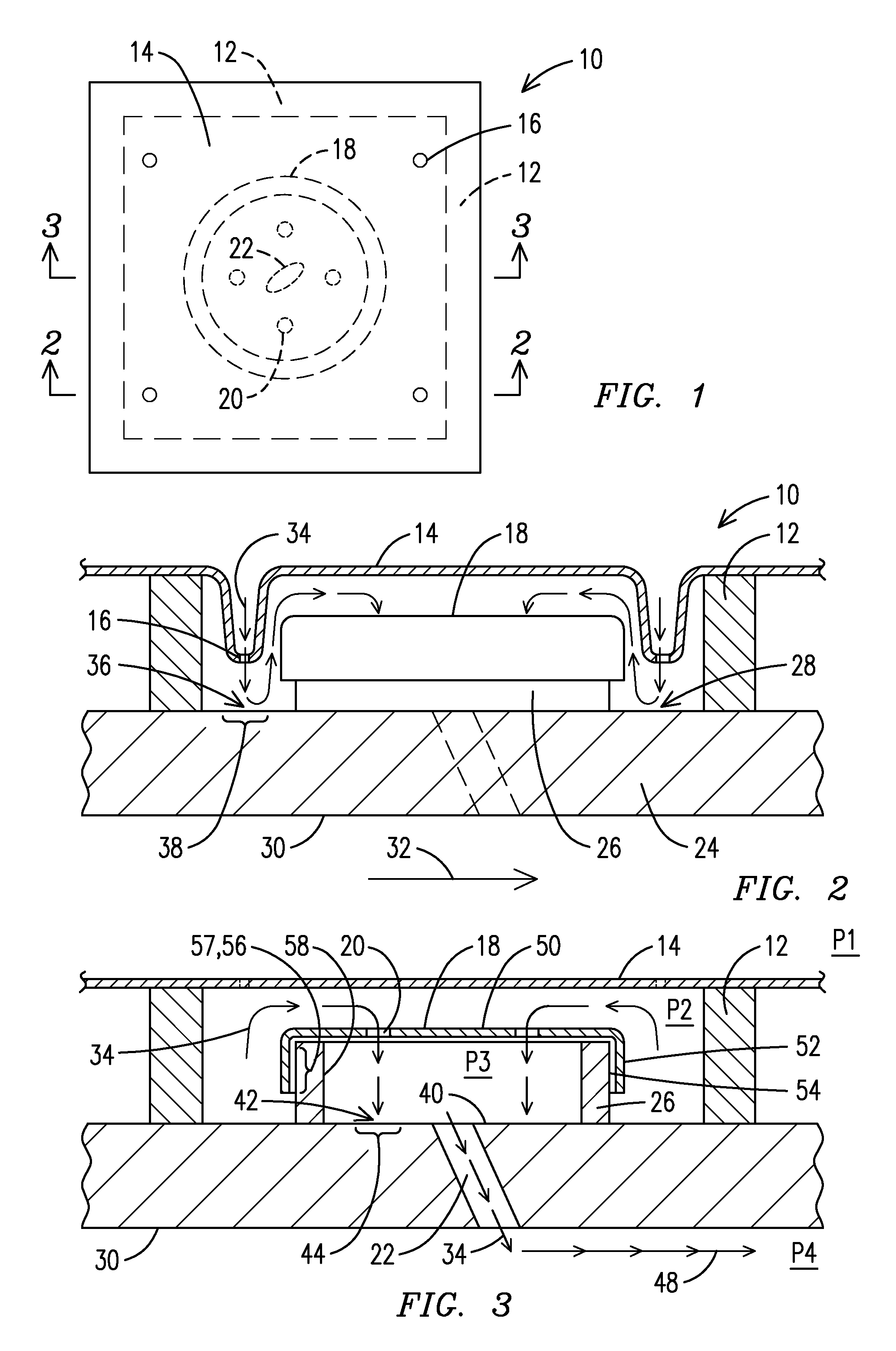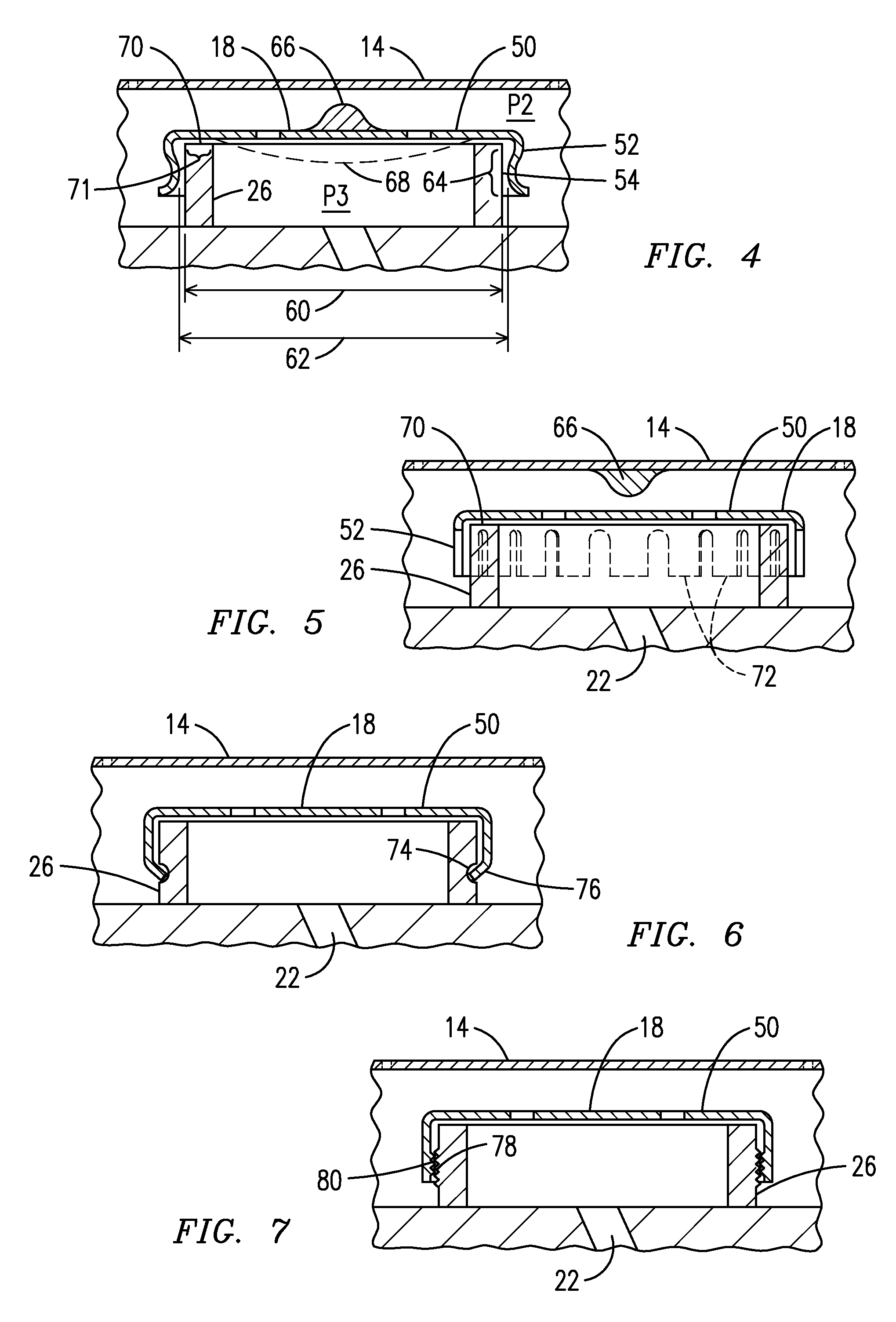Two stage serial impingement cooling for isogrid structures
a technology of isogrid structure and impingement cooling, which is applied in the direction of machines/engines, liquid fuel engines, light and heating apparatus, etc., can solve the problems of affecting engine performance, affecting engine performance, and reducing engine efficiency, so as to keep the surface cooler, affect engine performance, and impart turbulence.
- Summary
- Abstract
- Description
- Claims
- Application Information
AI Technical Summary
Benefits of technology
Problems solved by technology
Method used
Image
Examples
Embodiment Construction
[0013]An improved cooling system for components exposed to extreme high temperatures is disclosed herein. Such a component may be a component of an internal combustion engine, including a gas turbine engine. Various designs of such components may have pockets on the relatively cool side. These pockets may be there for structural strength or may be the result of other design considerations. An example, not meant to be limiting, of such a component is an advanced transition system that directs combustion gasses from a combustor to a first row of turbine blades. One such design is described in U.S. Pat. No. 7,721,547. In this design combustion gasses are accelerated from the end of the combustor to approximately 0.8 mach. The increased speed of the combustion gasses within the duct creates a larger static pressure difference between outside the component and inside the component than exists in conventional transition designs where the combustion gasses are moving much slower. The advan...
PUM
 Login to View More
Login to View More Abstract
Description
Claims
Application Information
 Login to View More
Login to View More - R&D
- Intellectual Property
- Life Sciences
- Materials
- Tech Scout
- Unparalleled Data Quality
- Higher Quality Content
- 60% Fewer Hallucinations
Browse by: Latest US Patents, China's latest patents, Technical Efficacy Thesaurus, Application Domain, Technology Topic, Popular Technical Reports.
© 2025 PatSnap. All rights reserved.Legal|Privacy policy|Modern Slavery Act Transparency Statement|Sitemap|About US| Contact US: help@patsnap.com



